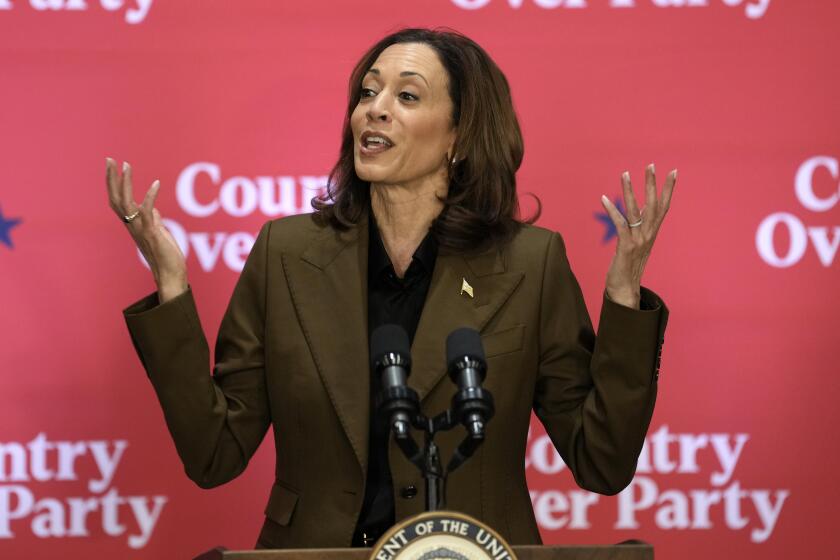Five key figures implicated in the ‘Panama Papers’ scandal
The story starts with a Panama-based law firm, Mossack Fonseca, which sets up shell companies in offshore tax havens to protect the global elite.
After an anonymous insider leaked a vast trove of the firm’s documents to a German newspaper more than a year ago, hundreds of journalists from dozens of news outlets in more than 80 countries teamed up to investigate how the world’s rich and famous – as well as the infamous – move their money around and hide their wealth.
The leaked files are called the “Panama Papers.” And the first round of stories published this weekend has already rattled governments and public figures around the world, with the news outlets led by the International Consortium of Investigative Journalists promising more to come.
FULL COVERAGE: 'Panama Papers' document leak
Here’s a look at some of the most prominent world figures who have been implicated so far.
Russian President Vladimir Putin
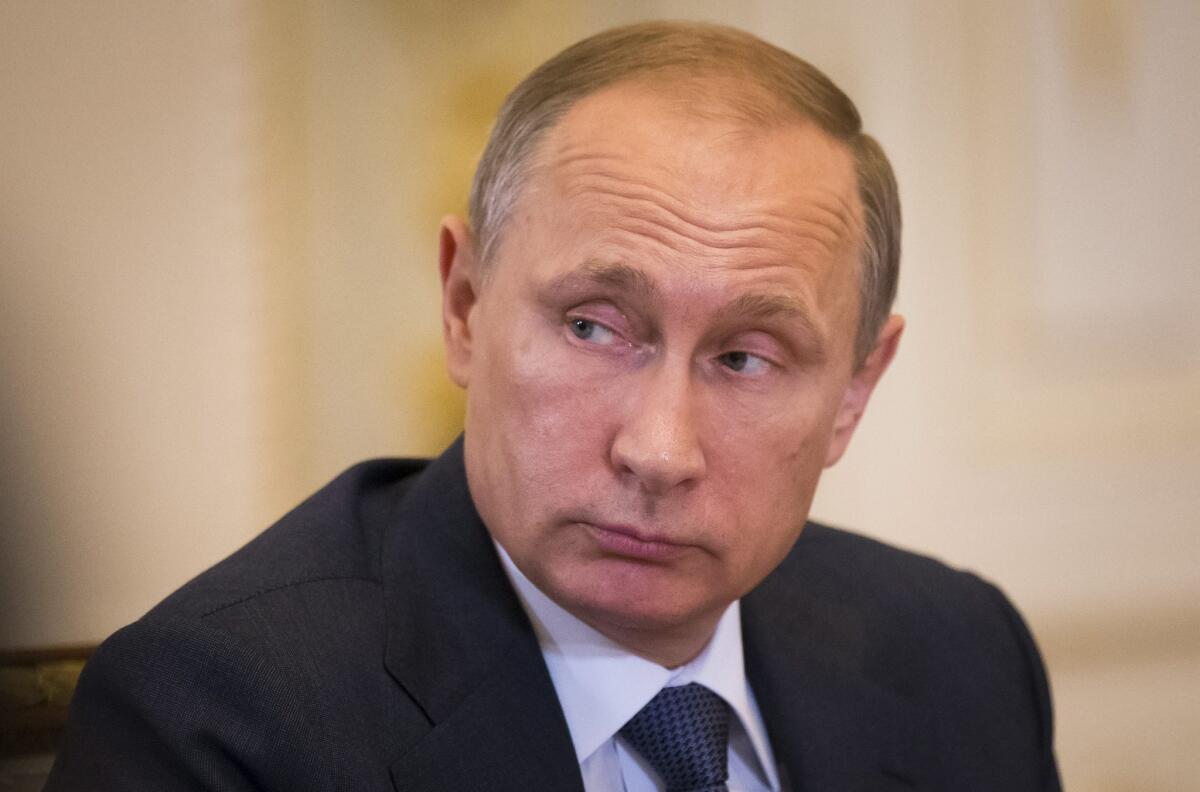
Putin’s name reportedly does not appear in the 2.6 terabytes of data leaked from Mossack Fonseca, which has branches around the world.
But there’s another name that does: one of Putin’s closest friends, Sergei Roldugin, a 64-year-old cellist who has somehow amassed $100 million through three offshore companies that list him as owner.
The leaked files suggest that Roldugin is not keeping this wealth for himself, but is funneling the money to Putin's inner circle. The Guardian reports that Putin is at the center of a network of $2 billion in offshore deals and loans, with Putin’s friends and associates, including Roldugin, earning “millions from deals that seemingly could not have been secured without his patronage.”
The transactions, the Guardian reports, “include apparently fake share deals, with shares ‘traded’ retrospectively; multimillion-dollar charges for vague ‘consultancy’ services; and repeated payments of large sums in ‘compensation’ for allegedly canceled share deals.”
Roldugin declined to comment about the transactions when approached by an investigative journalist after a concert in Moscow in March, saying he was “afraid to be interviewed,” and adding: “Where's the money from? Whose [money is it]? I know all that. These are delicate matters.”
Russian government officials criticized the Panama Papers reports as being part of an anti-Russia conspiracy. Putin’s spokesman Dmitry Peskov said the reports “lack details” and are “based on arguments and speculations.”
See the most-read stories this hour >>
Iceland Prime Minister Sigmundur Gunnlaugsson
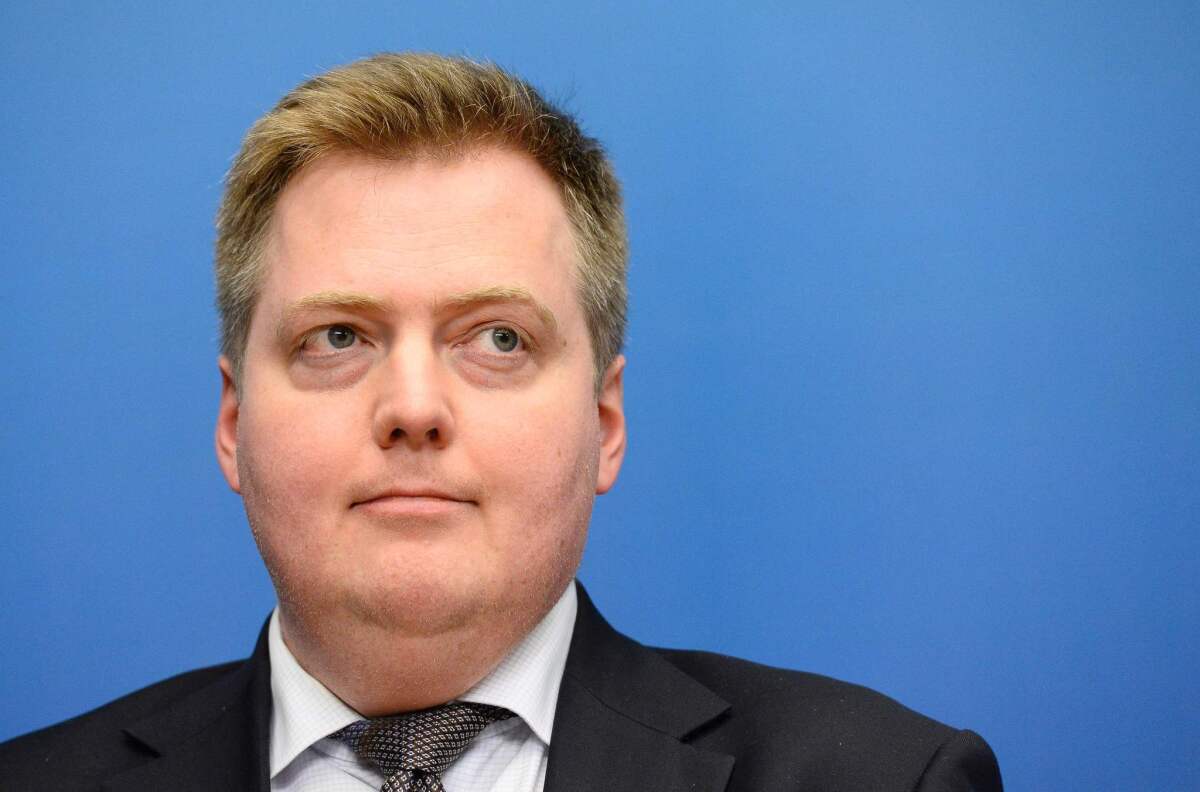
Revelations from the Panama Papers brought out thousands of protesters Monday in Iceland, where the future of the current government is now in doubt. Gunnlaugsson has a financial stake in the country’s collapsed banks through an offshore company set up by Mossack Fonseca, according to the German newspaper Süddeutsche Zeitung, the news outlet that originally obtained the leaked documents.
In Iceland, those bank connections are a problem for Gunnlaugsson. Iceland was devastated by the 2008 global financial crisis, which saw Iceland’s three biggest banks close in three days and the stock market drop 90%. More than two dozen executives were convicted in connection with financial schemes that helped wreck the nation’s economy. Icelanders are still seething.
Documents showed that Gunnlaugsson and his wife were actually creditors of the three failed banks – through their offshore shell company that held millions of euros' worth of bonds. For Gunnlaugsson, that presents a potential conflict of interest, since he has been involved with policy decisions that have affected whether and how the banks’ creditors are repaid, Süddeutsche Zeitung reported.
In March, Gunnlaugsson walked out of a TV interview when confronted about the company’s ownership. “You’re asking me nonsense,” Gunnlaugsson said. “Something is being made suspicious that isn’t suspicious. … This is totally inappropriate.” His wife later posted a statement on Facebook saying that she was the sole owner of the company and that her husband was accidentally named a shareholder.
Ukrainian President Petro Poroshenko
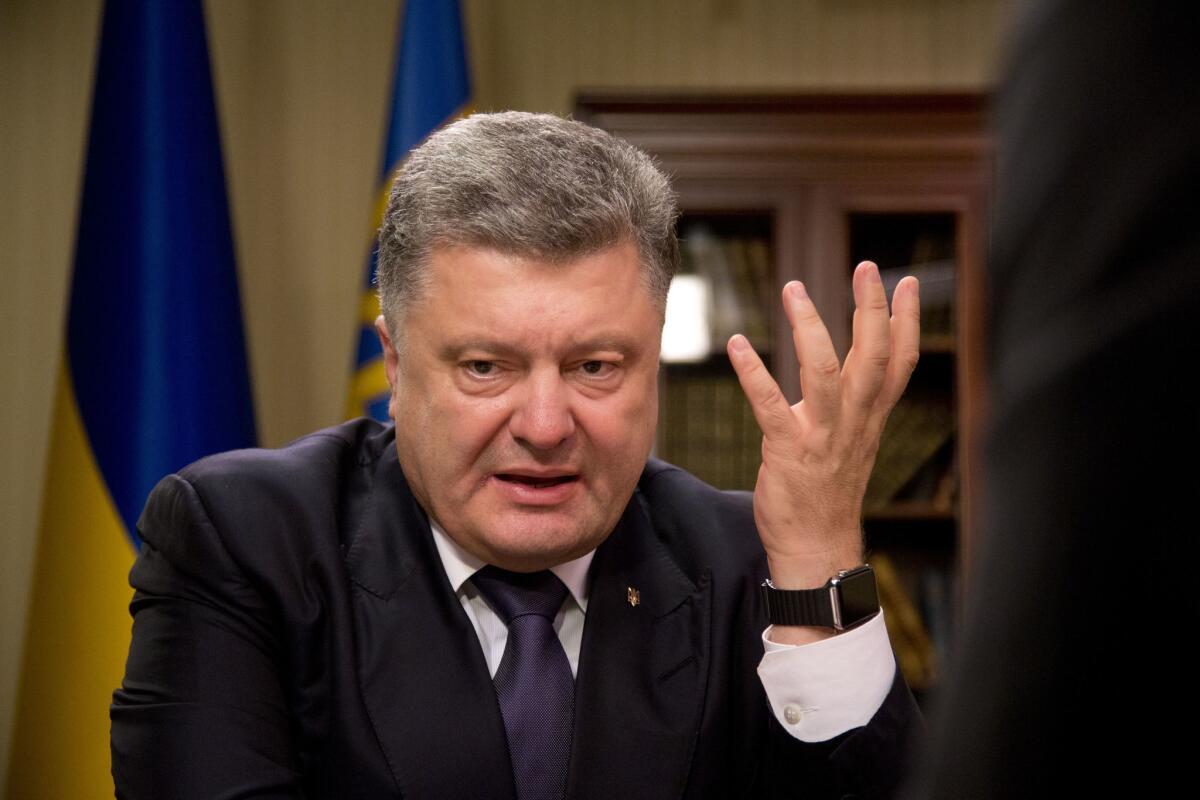
Poroshenko, a candy magnate known as the “Chocolate King,” rose to office in 2014 on the promise that he would root out corruption, at a time when the country was also battling pro-Russia fighters who had claimed large portions of Ukrainian territory.
Now, Poroshenko is facing threats of impeachment after the Panama Papers revealed Poroshenko moved assets to offshore holding companies in the British Virgin Islands -- “going so far as to arguably violate the law twice, misrepresent information and deprive his country of badly needed tax dollars during a time of war,” according to an investigation by the Organized Crime and Corruption Reporting Project.
Before his election, Poroshenko promised to sell his candy business, Roshen. But after reportedly setting up holding companies for Roshen in the Virgin Islands during some of the fiercest fighting in Ukraine, the company still hasn’t been sold, and nor had it been put in a blind trust as Poroshenko claimed, the journalists’ consortium reported.
The moves potentially violated laws that require financial disclosure and forbid starting new companies while serving as president. The news also comes as Ukraine’s government is trying to crack down on the use of offshore tax havens. Now, opposition lawmakers are calling for an investigation, according to the magazine Foreign Policy.
Poroshenko has denied breaking the law. “I believe I might be the first top office official in Ukraine who treats declaring of assets, paying taxes and conflict of interest issues profoundly and seriously, in full compliance with the Ukrainian and international private law,” Poroshenko said in a statement on Facebook. “Having become a president, I am not participating in management of my assets, having delegated this responsibility to the respective consulting and law firms. I expect that they will provide all necessary details to the Ukrainian and international media.”
Join the conversation on Facebook >>
FIFA and Lionel Messi
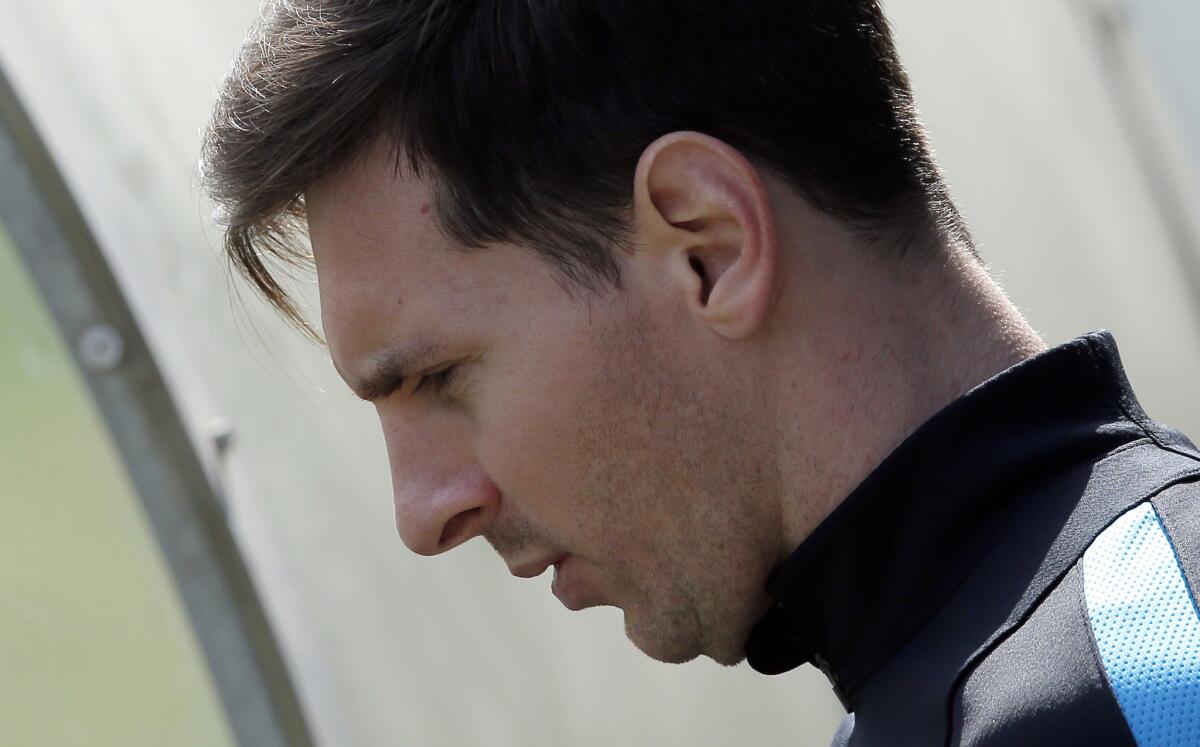
The Panama Papers may go down as one of those classic scandals that have a little something for every reader – including fùtbol fans.
One of FIFA’s ethics committee members, the Uruguayan attorney Pedro Damiani, is facing an internal investigation by the world soccer association after revelations from the Panama Papers. Damiani's law firm manages offshore companies, including several that may have been used to pay bribes in the corruption scandal that has led to the arrests of top FIFA officials, Süddeutsche Zeitung reported. A spokesman for Damiani told the newspaper he could not respond in detail due to the ongoing investigation.
Scandal has also touched Lionel Messi, perhaps the world’s greatest soccer player. Messi is already facing allegations of using offshore companies to illegally avoid taxation in Spain, and the Panama Papers revealed that Messi and his father shared ownership in yet another shell company temporarily managed by Mossack Fonseca, according to the Süddeutsche Zeitung. Messi and his father reportedly declined to comment, but Messi has previously said that he signs whatever documents his father presents to him.
Ian Cameron, father of British Prime Minister David Cameron
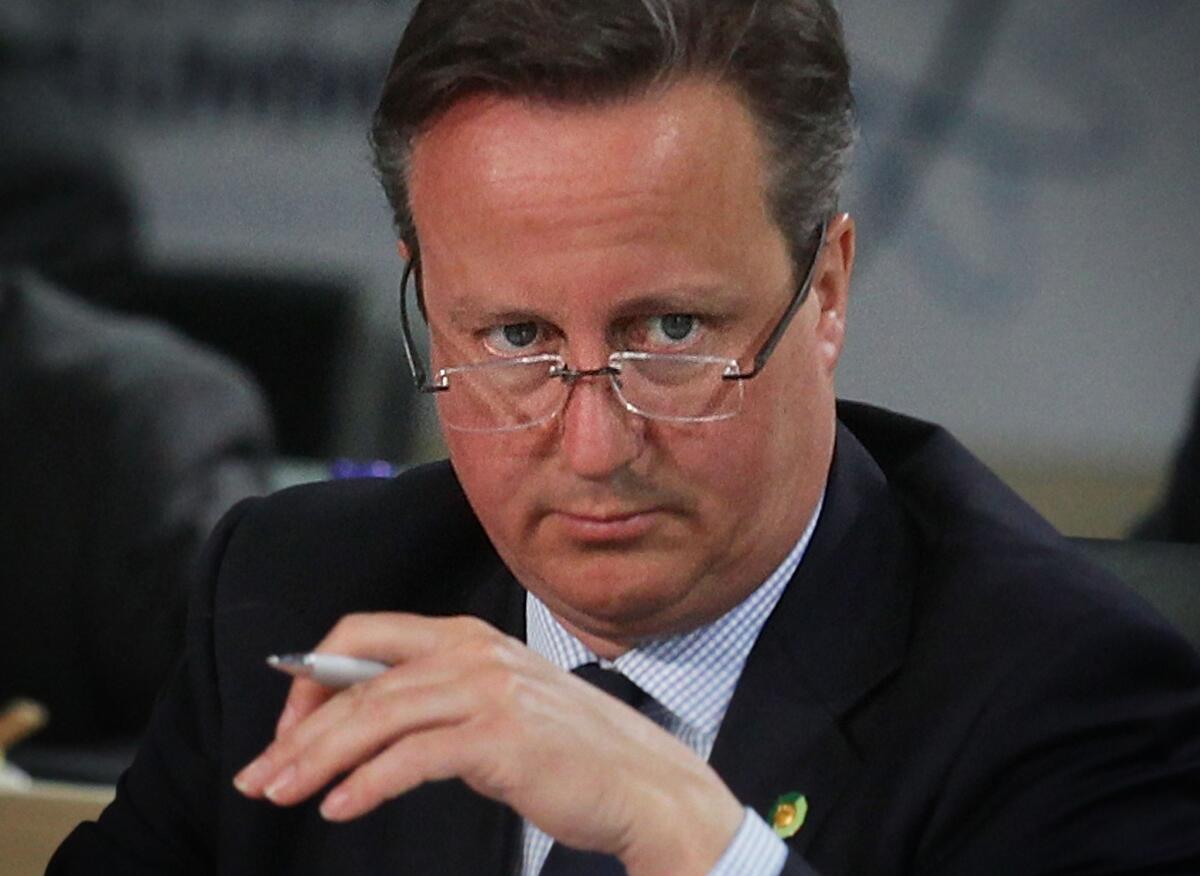
During a parliamentary fight over corporate taxation in January, the prime minister claimed that “no government has done more than this one to crack down on tax evasion and aggressive tax avoidance.”
It turns out the issue is close to home for Cameron. For at least three decades, Cameron’s late father, Ian Cameron, ran an offshore investment fund to help wealthy British clients avoid paying taxes in Britain, the Guardian reported, citing documents among the Panama Papers.
Ian Cameron’s company, Blairmore Holdings, Inc. -- named after the Cameron family’s ancestral home in Aberdeenshire -- used a “small army of Bahamas residents,” including a part-time bishop, to sign paperwork and serve roles including treasurer and secretary in order to avoid British taxation, the Guardian reported. Although the Panama Papers reveal the elaborate contortions the company had to make in order to avoid taxation, there is no suggestion Ian Cameron broke the law, the newspaper reported.
A spokeswoman for David Cameron told the Guardian it was “a private matter” when asked if the family still had money invested in the fund. She added that Cameron had “taken a range of action to tackle evasion and aggressive tax avoidance.”
MORE ON PANAMA PAPERS
Putin's best friend is at the heart of Panama Papers scandal
Panama Papers expose Pakistan's embattled prime minister to allegations of corruption
After massive 'Panama Papers' document leak, rich and powerful around the world deny wrongdoing
Sign up for Essential California
The most important California stories and recommendations in your inbox every morning.
You may occasionally receive promotional content from the Los Angeles Times.







